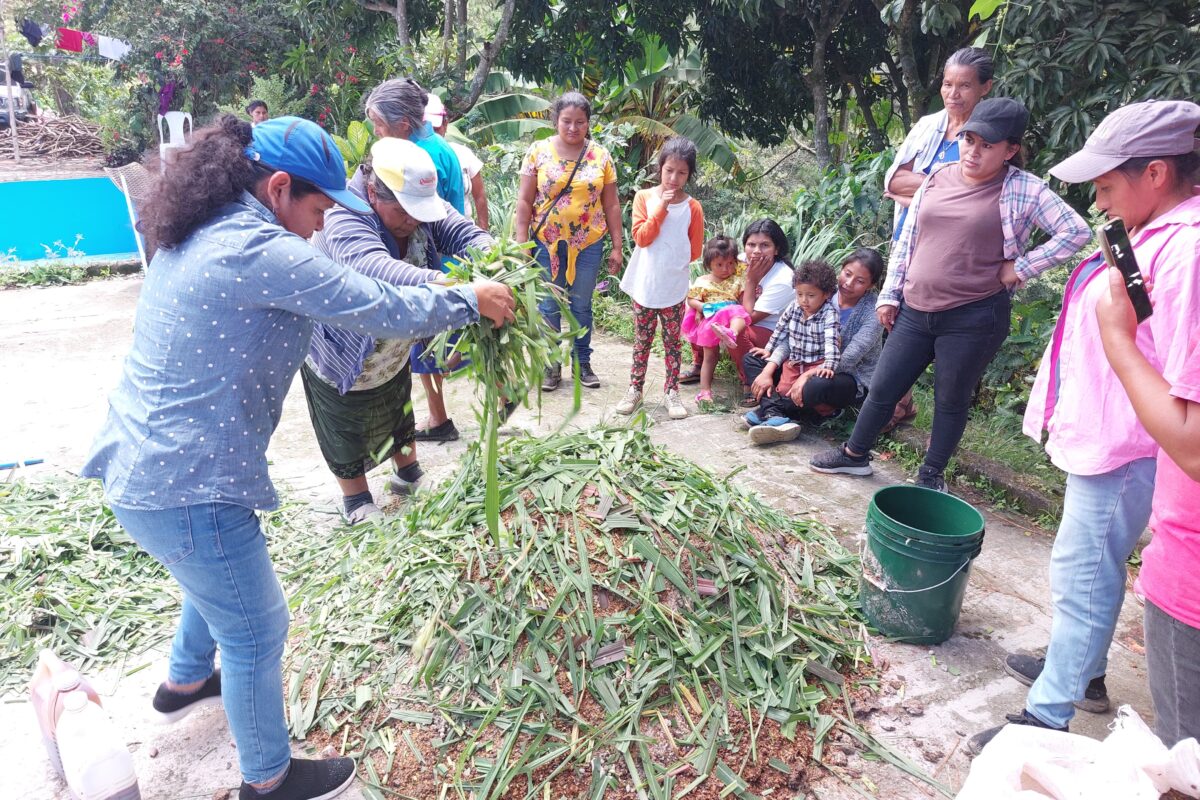
One of the newest partners of the Mary’s Pence ESPERA program, the Grupo de Mujeres Lencas (GML) from Honduras, is a group of Indigenous women who are small coffee producers committed to sustainable economic advancement. They also promote practices that respect the environment and gender equity in agricultural production.
Honduras relies heavily on coffee, its second-largest source of income after remittances. Yet, despite its importance, women like those in GML face immense challenges. Many of them don’t own the land they farm, limiting their access to credit, while others struggle with illiteracy, making it difficult to take on leadership roles.
Nevertheless, the women of GML are committed to achieving economic independence and helping their communities and families thrive. The coffee market has become more demanding in recent years, with consumers preferring organic products. Currently, the European market only purchases high-quality organic coffee.
In the past, GML received organic fertilizer for free from the CARUCHIL Cooperative to which it belongs, which helped it meet these market standards. However, a couple of years ago, when CARUCHIL Cooperative encountered financial difficulties, it could no longer provide organic fertilizer, forcing the women to switch to chemical alternatives since organic fertilizer is extremely difficult to find in that area. Most cooperatives only produce enough organic fertilizer for their own needs, and the prices for importing are even more expensive than the chemical option.
This affected their small business but also their daily lives because they also use the fertilizer for the fruit trees and home gardens where they grow most of the vegetables they feed their families. This was a setback—not only for their family gardens but also for their dream of producing sustainable, high-quality coffee.
In a meeting with Mabel, Mary’s Pence ESPERA Team Lead in the region, the group expressed their desire to improve their production processes. After several discussions about the high costs of fertilizer, GML members found a solution that would allow the women to become independent from external products: training on creating organic fertilizer. Mary’s Pence’s support was crucial in making this training possible through financial support.
On August 27, GML attended the “Ecological Agriculture Workshop for Women Coffee Producers” in Arenales, Chinacla. This workshop, facilitated by Engineer Herson Melghem, an expert in ecological coffee farming and a member of Café Orgánico Marcala, provided them with the essential knowledge to strengthen their farming methods. The training included the production of organic fertilizers such as bokashi and Bordeaux mixture, an economic and ecological alternative.
Olga, one of the participants, highlighted that these new skills will be applied not only to their coffee plots but also to their family gardens and subsistence crops. GML plans to use these methods to develop a new business initiative in the long term. Given their challenging experience trying to find and afford organic fertilizer, they decided to use this knowledge to produce and sell organic fertilizers to other small producers in the region.
GML has been organized since 2007, initially focusing on training its members. However, it was in 2021 that with the support of the CARUCHIL cooperative, in partnership with TRIAS, they were able to strengthen their economic initiatives, especially in the marketing and sales of ground coffee to European markets.
Unfortunately, GML has had to pause its international coffee trade due to financial difficulties at the CARUCHIL Cooperative, which previously bought and sold the women’s production to the European markets. CARUCHIL was their crucial link to Europe, where there is a high demand for organic coffee. Despite this setback, the women have not lost hope. They are using the knowledge gained from past experiences and recent organic farming training to prepare for their next harvest.
With these new techniques, they plan to resume selling their coffee to European buyers as soon as possible by meeting with big cooperatives that could serve as their new intermediate. In the meantime, they continue to sell their coffee locally, directly and indirectly, benefiting more than 300 families in the municipality of Chinacla.
This training represents a significant step toward economic independence for these Indigenous women. Through their active participation in coffee production and their commitment to ecological agriculture, the Grupo de Mujeres Lencas is creating a more equitable and sustainable model in one of Honduras’ most important productive sectors.
